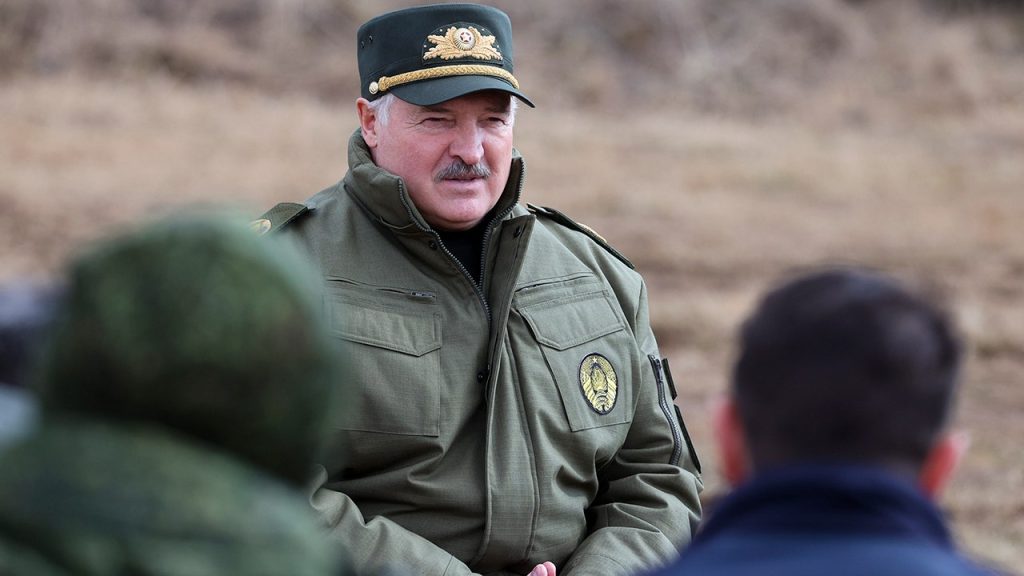Belarusian authorities have stepped up their crackdown on dissent by conducting raids and seizing property belonging to 104 opposition activists who have fled the country. President Alexander Lukashenko initiated the crackdown in August 2020 following mass protests against his disputed reelection that the opposition and the West have criticized as rigged. More than 35,000 people have been arrested, thousands brutally beaten in custody, and independent news organizations and rights groups have been shut down, with journalists imprisoned. Since then, about 500,000 people have fled Belarus out of a total population of 9.5 million, and authorities have begun targeting Belarusians abroad who call for tougher sanctions against the country.
The latest raids and seizures targeted activists who criticized Belarusian authorities abroad and rallied to mark the anniversary of Belarus’ independence. Authorities launched a criminal probe on charges of “forming an extremist group” and “discrediting Belarus,” offenses that carry prison sentences of up to seven years. Participants of rallies held in various countries to commemorate the anniversary of Belarus’ independence in 1918 were tracked down in Poland, Lithuania, Belgium, Georgia, the Czech Republic, the U.S., and elsewhere. An Investigative Committee spokesman accused them of being “fugitive puppets” and promoting economic and political pressure on Belarus.
Opposition leader Sviatlana Tsikhanouskaya, who fled Belarus in 2020 amid pressures from authorities, described the raids and seizures as the regime’s retaliation against those who continue to fight against dictatorship. She noted that Lukashenko’s regime is attempting to instill fear not only among Belarusians within the country but also among those living abroad. Tsikhanouskaya commented on the tough conditions resembling the Stalin era, with intensified repression, arbitrary arrests, and constant instability. The crackdown has also resulted in the imprisonment of prominent figures such as Ales Bialiatski, founder of Viasna, Belarus’ oldest and leading rights group, who received the Nobel Peace Prize in 2022.
The repressive actions by Belarusian authorities have drawn condemnation from international human rights organizations and Western governments. The crackdown has led to significant human rights violations, including arbitrary arrests, ill-treatment of detainees, and suppression of free speech. The targeting of activists abroad signifies an escalation in the regime’s efforts to silence dissent even beyond its borders, reflecting a broader trend of authoritarian regimes cracking down on opposition voices across the globe. The raids and seizures serve to intimidate and punish those who continue to speak out against the regime, instilling fear and uncertainty among Belarusians, both inside the country and abroad.
As the crackdown on dissent continues in Belarus, it is imperative for the international community to increase pressure on the Lukashenko regime to respect human rights and uphold democratic principles. Sanctions and other punitive measures should be imposed on Belarusian officials responsible for human rights violations, while support should be extended to civil society groups and activists working to promote democracy and freedom in the country. Belarusians both within the country and abroad deserve solidarity and assistance in their struggle against repression, ensuring that their voices are heard and their rights protected. The ongoing crackdown underscores the importance of standing up against authoritarianism and defending fundamental freedoms, both in Belarus and around the world.


